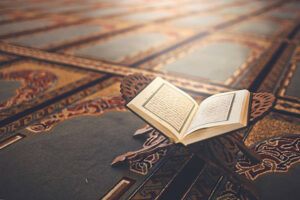Hazrat Moulana Muhammad Ilyaas (rahmatullahi ‘alaih) once mentioned the following:
There are great barakaat (blessings) reported in the Qur’aan and Hadith for those who spend wealth in the cause of deen. However, it should be understood that these abundant barakaat and blessings which are promised are only a small fraction of the actual reward for the good deeds one carries out. These are not the actual reward for the good deeds, as the world does not have the capacity to contain the reward that Allah Ta‘ala wishes to bestow upon the servant for the good deeds that he carries out. (Hence, the actual reward for the good deeds will be reaped in the Hereafter.) How can the world have the capacity to contain the special blessings of the Hereafter?
In this world, even a solid creation like the mountain, and even a great Nabi like Nabi Musa (‘alaihis salaam), were unable to endure a slight Tajalli of Allah Ta‘ala (manifestation of the glory of Allah Ta‘ala), then how can this world endure the special blessings of the Hereafter which Allah Ta‘ala has in store for the believers?
(The above is in reference to the incident when Nabi Musa (‘alaihis salaam) supplicated to Allah Ta‘ala and asked to see Allah Ta‘ala, then Allah Ta‘ala made apparent a slight manifestation of His glory upon the mountain. The mountain came down crumbling and Nabi Musa (‘alaihis salaam) fell unconscious, as both were unable to endure even the slight manifestation of the Tajalli of Allah Ta‘ala.)
It is reported in the Hadith that if the blessings of Jannah had to be sent down to this world, then a believer, out of joy and ecstasy, would pass away, as his heart would not be able to contain the happiness. Similar will be the severe punishment of the Hereafter meted out to those who commit sins. If Allah Ta‘ala were to send down one scorpion of Jahannum into this world, then through its venom, the entire world would be burned and destroyed.
(Malfoozaat Hazrat Moulana Muhammad Ilyaas (rahmatullahi ‘alaih) pg. 75-76)
Source:Ihyaauddeen
 Wifāq ul Ulāma (SA) ASSOCIATION OF SOUTH AFRICAN 'ULAMA
Wifāq ul Ulāma (SA) ASSOCIATION OF SOUTH AFRICAN 'ULAMA



